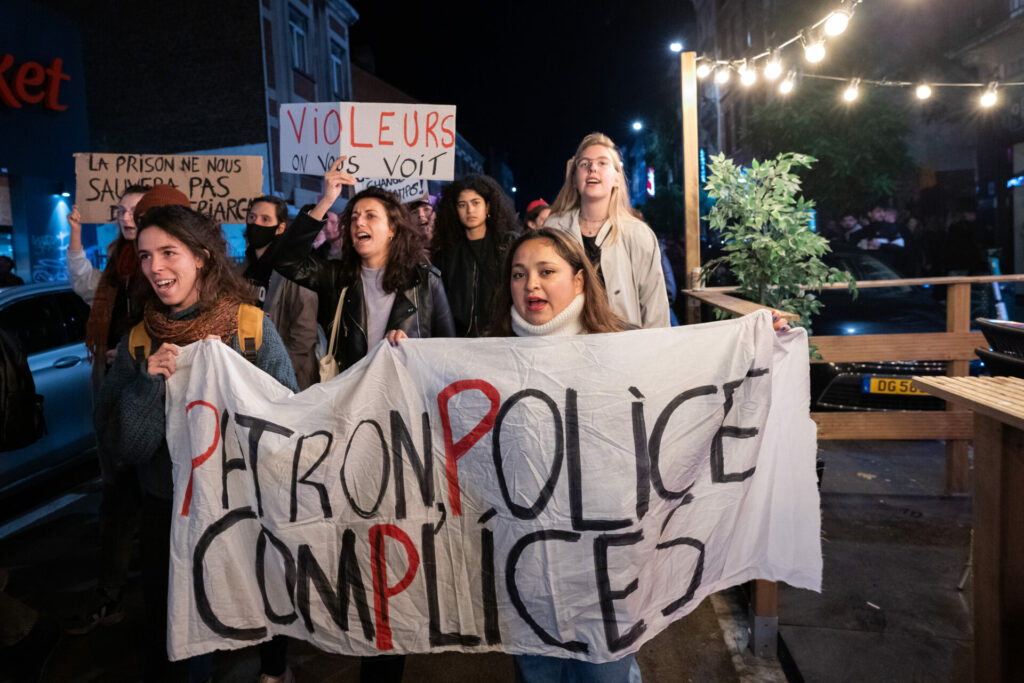In October 2021, Brussels' nightlife came under fire as numerous bars in the Cimetière d'Ixelles area, a popular night out destination for many of the city's students, were accused by the #BalanceTonBar movement of being the location of a number of sexual offences, the most serious of which was the accusation of bartenders drugging women.
As a result, a 1,000-person protest took to the streets of Ixelles, prompting the commune, with the help of the associative sector, to conduct an audit on the perception of their nightlife before deciding which measures to implement in these bars. The Brussels Times was able to access the findings of this investigation.
The audit aimed to quantify the experiences of women, victims of sexism, people who experienced racial violence, and members of the LGBTQ+ community who go out in the Cimetière d'Ixelles quarter and Place Flagey.
The key numbers
The figures reflect the severity of the issue, as the results showed that 96% of respondents reported having witnessed, directly or indirectly, at least one instance of gender-based violence or sexual harassment.
The majority of them (53%) had themselves experienced sexual harassment or assault, while 28.7% had been subjected to it on multiple occasions. Furthermore, 15% of respondents had already been drugged without their knowledge and 11.9% had been a victim of sexual assault.
In one out of two cases, the violence appeared to be discriminatory in nature as perpetrators would target the victim's physical appearance, skin colour, sexual orientation, disability and/or gender identity.
Related News
- A third of sexual violence committed against minors in Belgium
- Man drugged by syringe in Brussels nightclub
- Safe zones in clubs and increased street lighting in Brussels to tackle sexual violence
The audit also included the response of victims and found that 90% of those surveyed would rather turn to their friends than to the relevant authorities. In comparison, only 36% of respondents would contact the police, with even fewer turning to security and bar personnel (27% and 19%, respectively).
All in all, only 28% felt they didn't have to be vigilant when visiting these bars, and only 12% of them feel safer since the #BalanceTonBar movement gained traction last October.
Next steps
The audit concluded that the general sense of insecurity was a systemic phenomenon and had a profound impact on how people planned their nights out. It found that most respondents take several steps to protect themselves in the event of danger, such as ensuring their phone was fully charged or paying attention to one's outfit.
Clients perceive bar management and personnel to be part of the issue, not part of the solution, according to the survey, which found that clients believe this would improve if bars trained and sensitised their employees, implemented an effective code of conduct, and increased police involvement.
"The point is to take action, but above all for them to act differently," the report stated.
In response, the Mayor of Ixelles has reactivated the commune's Nightlife Council, whose goal is to collaborate and develop local-level measures to ensure a safe nightlife for everybody.

